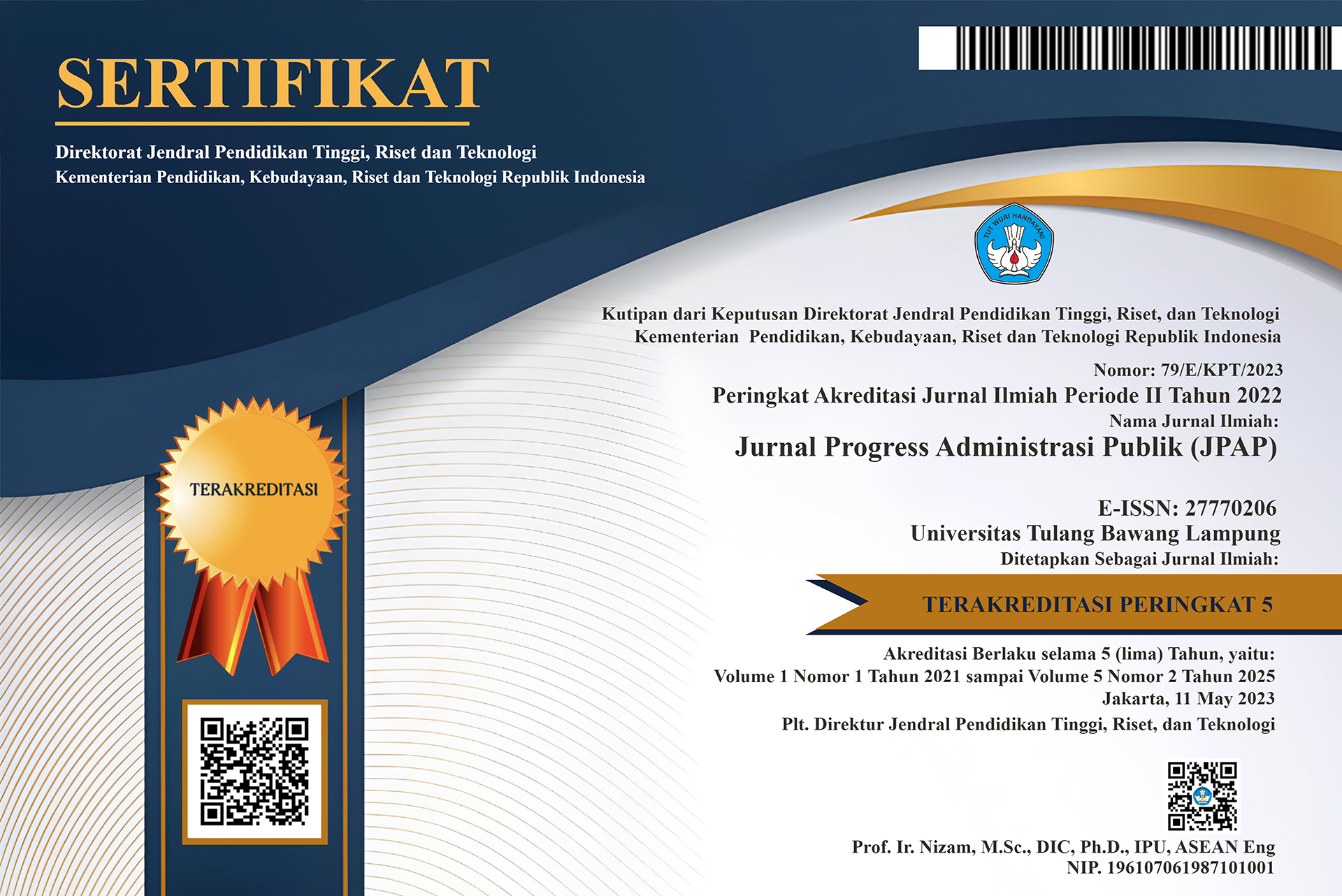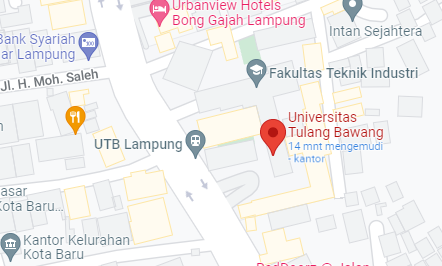EFEKTIVITAS ANALISIS JABATAN PADA KOPERASI PEGAWAI REPUBLIK INDONESIA (KPRI) SAPTAWA POVINSI LAMPUNG
DOI:
https://doi.org/10.37090/jpap.v2i1.542Abstract
Based on Article 117 paragraph (1) of Law Number 43 of 1999 concerning Amendments to Law Number 8 of 1874 concerning the Principles of Personnel, it is determined that civil servants are appointed in positions and ranks. To ensure objectivity, transparency, and conformity between the job demands and the employee who will occupy the position, it is necessary to carry out a job analysis. The results of the job analysis in the form of job information can be used for institutional, management, and staffing purposes. In this study, researchers conducted research on the effectiveness of Job Analysis in the Indonesian Civil Servant Cooperative (KPRI) SAPTAWA, Lampung Province. The method used in this research is a qualitative research method with a descriptive research design. The results of this study are from various indicators used to measure the achievement of goals, acquisition of resources, internal processes and satisfaction of strategic constituencies. From the points of achievement of the effectiveness indicators, the researcher concludes that the Job Analysis at the SAPTAWA Province Employee Cooperative of the Republic of Indonesia (KPRI) in Lampung Province has been effective and has made the quality of service provided to customers and the internal working atmosphere well done. The supporting factor in the implementation of this job analysis is a clear legal basis, then the inhibiting factor in the job analysis at the Indonesian Civil Service Cooperative (KPRI) SAPTAWA Lampung Province is the ideological difference between employees.
Keywords: Effectiveness, Job Analysis, Cooperatives
Downloads
References
Akhyar, M. (2020). Pelaksanaan Analisa Jabatan Yang Tepat Dalam Rangka Meningkatkan Efektivitas Kerja Pada Kantor Study Centre Indonesia (SCI) Kota Makasar. Jurnal Manajemen Vol. 3 No. 2.
Aprianti, D. I. (2017) Implementasi Analisa Jabatan Pada Tenaga Kependidikan Di Universitas Widya Gama Mahakam Samarinda. Jurnal Ekonomika,1-10.
Astuti, W. (2018). Implementasi Analisis Jabatan Dalam Penempatan Pegawai Di Bagian Kepegawaian Sekretariat DPRD Kabupaten Bandung. Jurnal Ilmiah MEA. (Manajemen, Ekonomi, & Akuntansi), Vol.2. No.3: 178-207.
Dewi, S. M. (2018). Jurnal Manajemen dan Supervisi Pendidikan. Jurnal Manajemen dan Supervisi Pendidikan Volume 2 Nomor 2. 62-62.
Dian Purwanti, I. I. (2018) Efektivias Kebijakan Penerimaan Peserta Didik Baru Sistem Zonasi. Jurnal Administrasi Publik, hal. 1- 7.
Hasan, R. (2019). Efektivitas Penilaian Kinerja Di Badan Kepegawaian Dan Pengembangan Sumber Daya Manusia (BKPSDM) Kabupaten Aceh Tengah. Volume 1, Nomor 1, hal. 1-8.
Hikmah Husniyah Farhanindya, D. S. (2019). Studi kasus analisis jabatan. pada perusahaan daerah kota. Jurnal, Fenomena, Volume 28 Nomor 2 hal. 28-35.
Moekijat. (1999). Analisis Jabatan. Bandung: Mandar Maju.
Nawawi, H. (2008). Manajemen Sumber Daya Manusia Untuk Bisnis Yang Kompetitif. Yogyakarta: Gadjah Mada University Perss.
Pattisahusiwa, S. (2013). Pengaruh Job Description Dan Job Spesification Terhadap Kinerja Proses. Jurnal Akuntabel, Volume 10 Nomor 1 Hal. 60.
Penulis, T. (2015). Paduan Praktis Menyusun.Jobdesc. Jakarta: Raih Asa Sukses.
Suwatno, D. J. (2018). Manajemen SDM Dalam Organisasi Publik Dan Bisnis. Bandung: Alfabeta.
Yunanik, I. D. (2013). Implementasi Analisis Jabatan Dalam Rangka Menyiapkan Organisasi Akamigas Menuju .“STEM “Akamigasâ€(Studi pada Akademi Minyak dan Gas Bumi, Cepu, Jawa Tengah). Diss.Diponegoro University
Downloads
Published
Issue
Section
License
Copyright (c) 2022 Jurnal Progress Administrasi Publik (JPAP)

This work is licensed under a Creative Commons Attribution-ShareAlike 4.0 International License.























